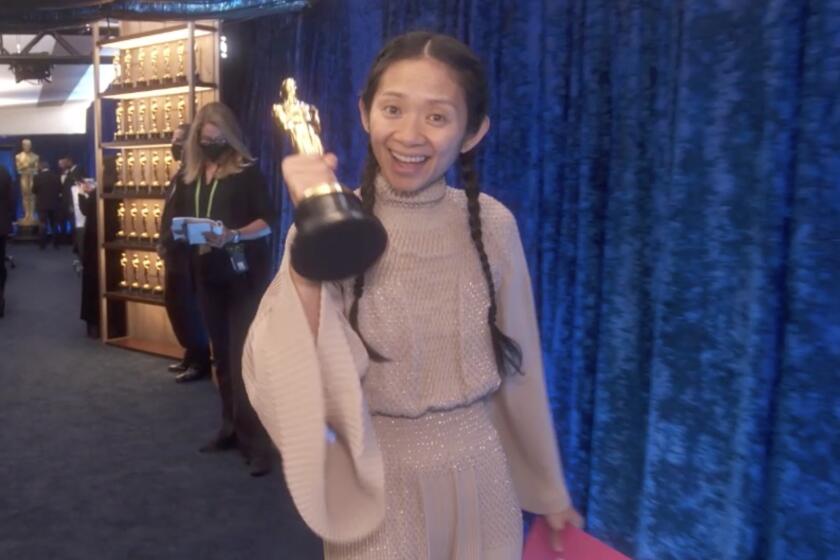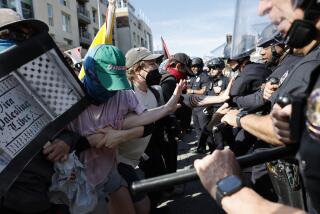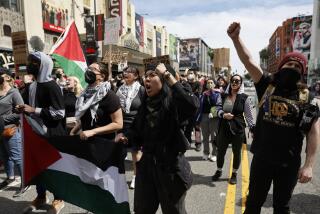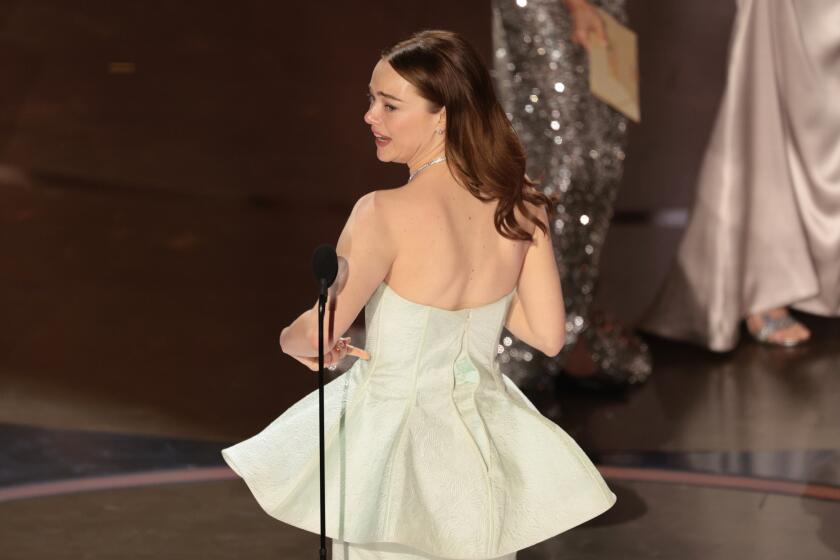The Oscars blocked Union Station for COVID test takers and disabled people. What to know
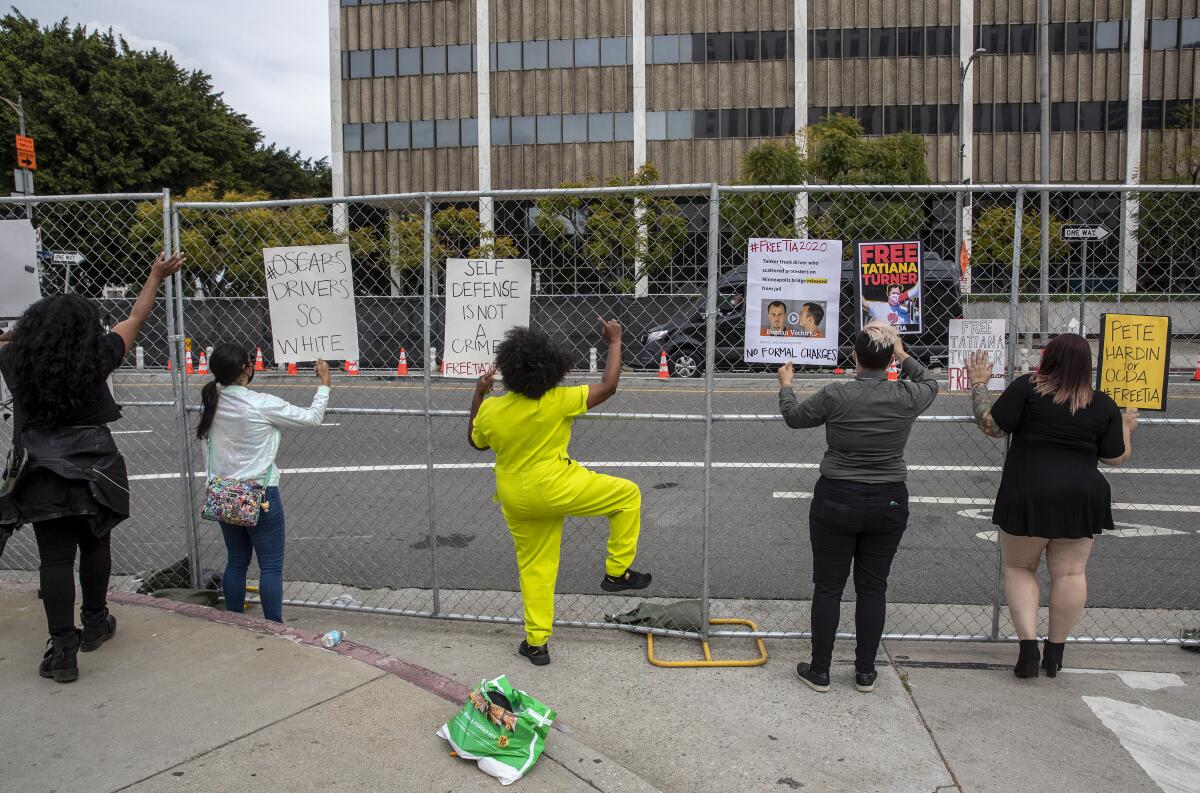
While the likes of Glenn Close, Daniel Kaluuya and Zendaya were quietly escorted into Union Station on Sunday for the 93rd Academy Awards, a different kind of procession was unfolding around the corner: Angelenos struggling to find a COVID-19 testing site that had been relocated from the front of the transit station to the backside of the complex to accommodate Oscars festivities.
“It was hard for us to find it,” said Wendy Moncada, who was accompanying her boyfriend to the testing site about an hour before the 5 p.m. telecast kicked off. “The whole parking situation was difficult, and there was no drop-off or pickup.”
The main entrance to the station was closed, so approaching the usual way from Alameda Street was impossible. Motorcycle police, security personnel, chain link fencing and concrete blockades rendered buildings inaccessible from the front or sides. The only way in was about half a mile away, through a dingy underpass on Cesar Chavez Avenue.
A staff member for Curative, which runs the testing site and relocated it April 1, called the move “a fiasco.” (The employee asked not to be identified because the employee was not authorized to comment.)
“Nomadland” takes home the best picture, director and lead actress awards at the 2021 Oscars.
Hollywood has long been accustomed to the extremely restrictive and imposing security that accompanies the Oscars, as hordes of work crews and oh, so many celebrities have descended on the Dolby Theatre every year since 2002.
At Union Station, not so much.
During the surreal year of the Pandemic Oscars, the Hollywood bonanza seemed distinctly out of place around a public L.A. landmark that’s a Tiffany diamond choker’s throw away from an encampment of homeless people in Junipero Serra Park and across from historic Olvera Street, which has had the life and music drained out of it during the pandemic.
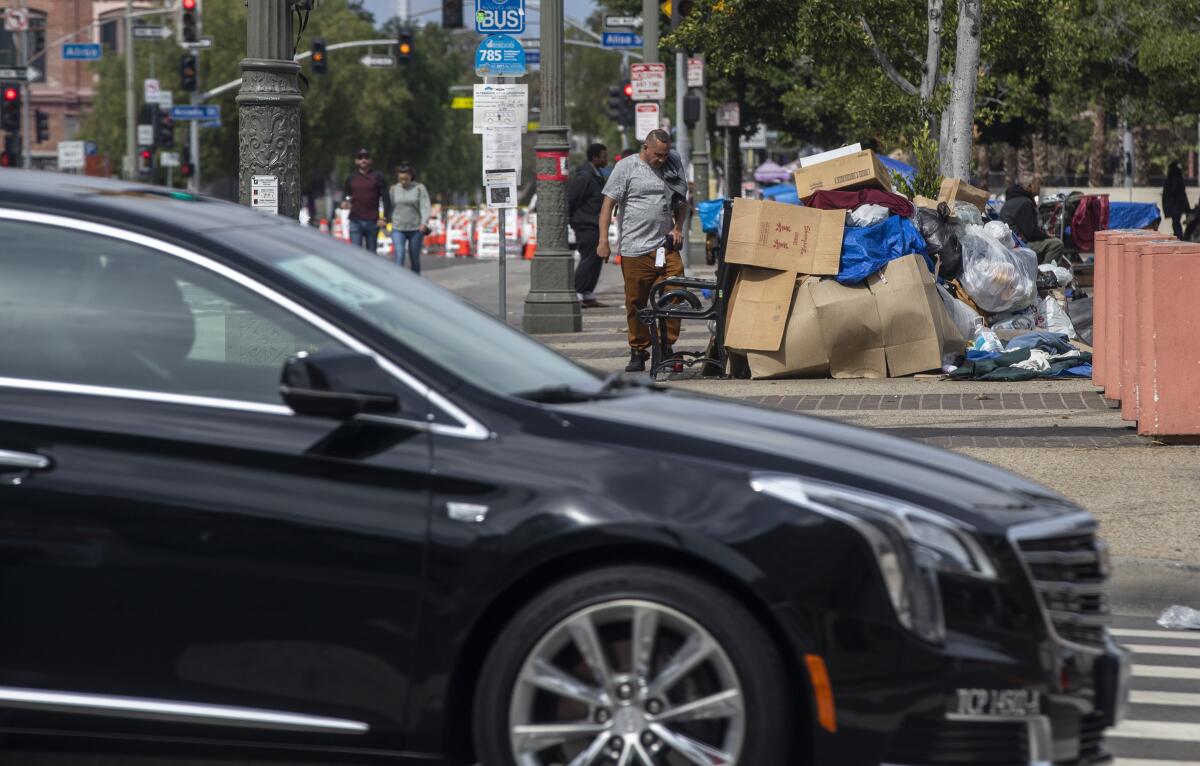
Reporters who normally would be in gowns and suits milled about in jeans and marginally fancy shirts. Gone were the glitterati making elaborate entrances on the red carpet, the overworked publicists, the crazed assistants and the rows of shrieking fans.
Some residents of the adjacent Mozaic at Union Station Apartments were angry at the weeks-long lead-up to the ceremony, which they said cut off access to the station and brought inconvenience and noise.
“For weeks it has been a nightmare of construction before dawn every single day,” said Dana Wilkie, who stood in her window next to a large pink sign emblazoned with “Oscars Suck.” “We pay thousands of dollars to live here and they treat us like prisoners.”
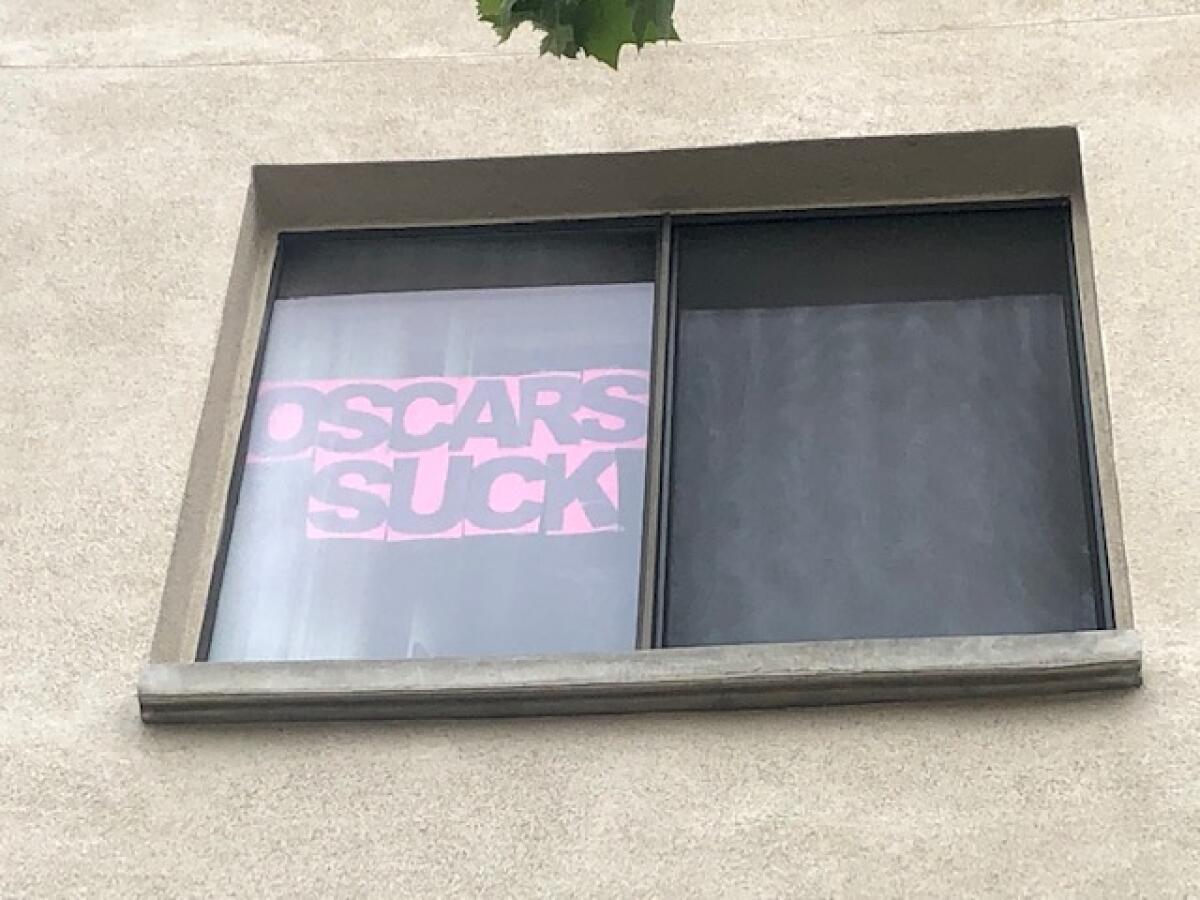
On the sidewalk below, Ash Pana called the situation a “boondoggle” and said it had been drastically mismanaged.
“A lot of this is just terrible planning, and it’s removing access to a public utility for private profit in a way that makes no sense and does not allow for flexibility,” Pana said. “They made it more unsafe, more inaccessible, and disrupted thousands of people’s lives.”
Pana, who suffers from chronic pain and sometimes uses a walker, said other disabled people had been directed to detour at least 10 blocks rather than receive an escort into the station to which they needed access.
“From here you can hit the station with a super-soaker, but people have to walk at least 15 minutes out of their way, each way,” Pana said.
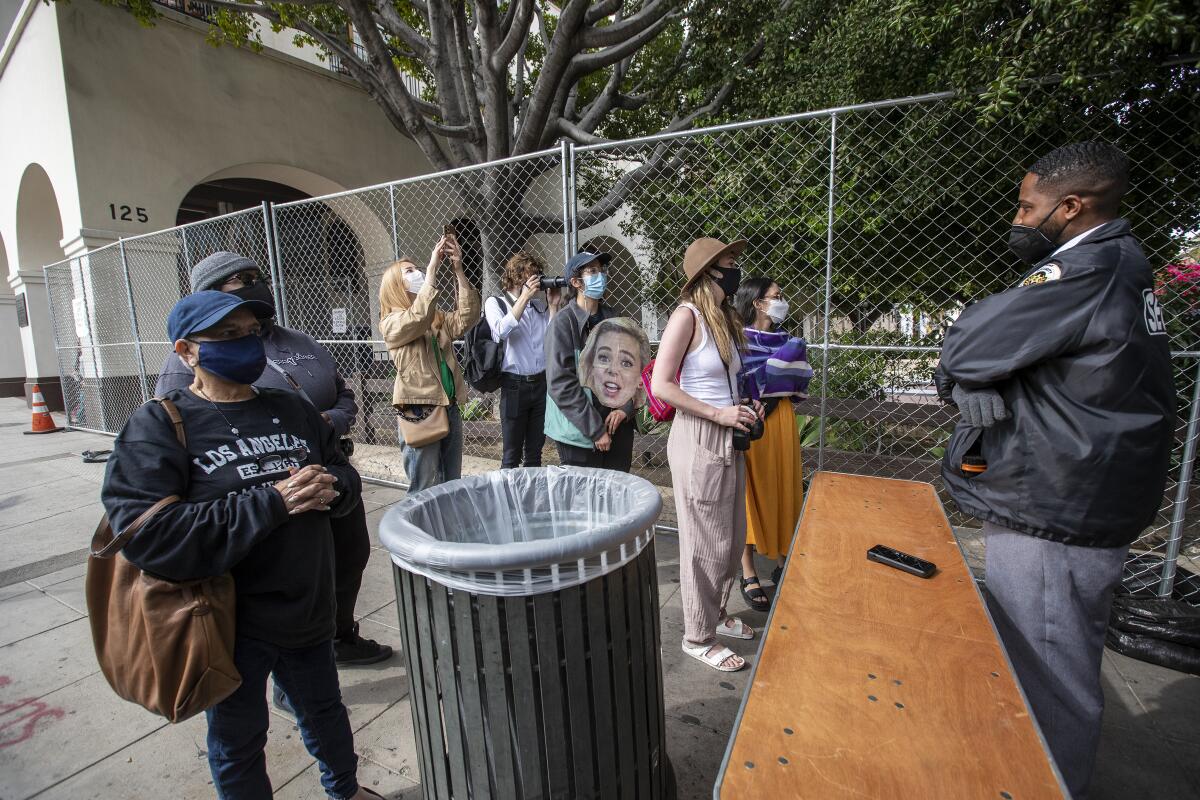
Inside Union Station, employees at Wetzel’s Pretzels and a Subway sandwich shop said they hadn’t noticed too much of a difference in their daily lives, other than the fact that when it was time to take out the trash, they had a long detour because of the Oscars, and that was a bummer.
The upside? A lot more business, said Danny Morales who was working the counter at the pretzel shop.
Morales’ view, which normally includes the expansive Art Deco entryway, was a black wall with security flanking entry points. Crane your neck beside one of those entry points — before an anxious security guard shooed you away — and you’d see men in tuxedos beneath large paper lanterns hanging in the trees and piles of lush, multicolored flowers.
A woman in a glittering gold dress paired with a matching glitter mask rushed by on impossibly high heels, clearly flustered by a detour she had encountered.
Police driving by in a golf cart said this day was like any other, though maybe more quiet.
“You should come here when there isn’t a big Hollywood party,” one said.
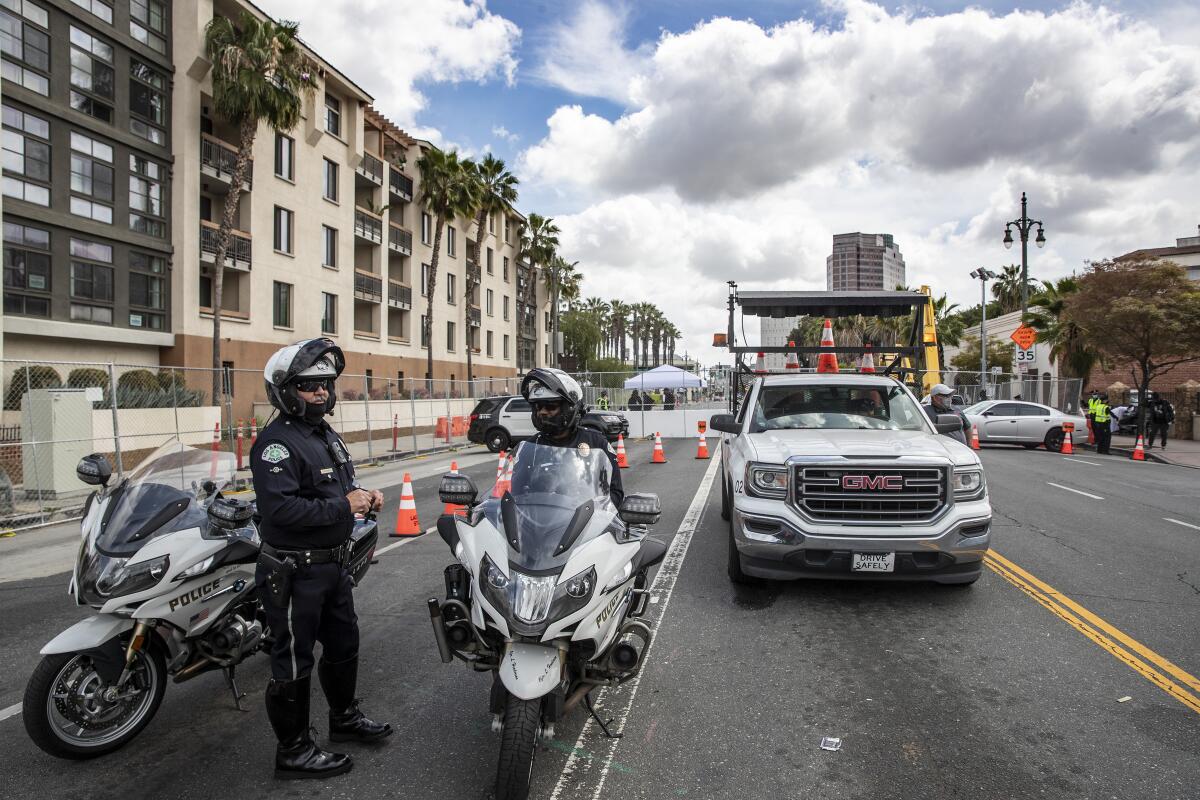
Judy Gerhardt, chief of system security and law enforcement for the Los Angeles County Metropolitan Transportation Authority, was patrolling the perimeter with her deputy. She said Metro has worked closely with the L.A. Police and academy security in a “collective effort to make sure our ridership is not affected.”
But for those making the walk toward the COVID-19 testing site, the underpass proved cramped and smelly. A person or persons had relieved themselves on the sidewalk more than once and in more ways than one. At a different spot, about 10 people milled around trying to get a view of the proceedings. It didn’t happen, but they took selfies anyway.
A couple of chefs in crisp whites smoked cigarettes, their special Oscars security wristbands glittering in the late afternoon sunlight. What’s it like in there? Sorry, one said, explaining that he and every other employee had signed a non-disclosure agreement.
Isabel Rojas-Williams, an art historian and local mural expert also was there, waiting for a friend who had come from Chile in support of the nominated Chilean documentary “The Mole Agent.” She provided the rare bit of sunshine on an otherwise gloomy day outside the gates.
“I’m delighted the Oscars are taking place at Union Station, which is one of the architectural gems of the city,” said Rojas-Williams. “It would be wonderful if the Oscars happened in different locations each year to show our diversity, and to show that we are multicultural. We have this richness to show the world we are more than just Hollywood.”
Chloé Zhao’s ‘Nomadland’ was the big winner at the 2021 Oscars, while diverse winners made history and Hollywood hoped for a comeback
More to Read
The biggest entertainment stories
Get our big stories about Hollywood, film, television, music, arts, culture and more right in your inbox as soon as they publish.
You may occasionally receive promotional content from the Los Angeles Times.
